 May had a disappointingly low level of activity for bids being submitted and awarded, but congratulations are due to Schools for winning consultancy contracts, research grants and organising Short Courses.
May had a disappointingly low level of activity for bids being submitted and awarded, but congratulations are due to Schools for winning consultancy contracts, research grants and organising Short Courses.
For ApSci, congratulations are due to Holger Schutkowski for his award from the Polish Ministry of Science and Higher Education to look at the variability of diet in human populations of the Near East from the Neolithic to the Modern period, to Jonathan Monteith for his two consultancies with Peter Gunning and Partners LLP and with Distributed Generation Ltd, and to Grants Academy members Emilie Hardouin and Demetra Andreou for their consultation with Natural Resources Wales. Good luck to Roger Herbert and Rick Stafford with their contract to Scottish Natural Heritage, and to David Parham and Jonathan Monteith for their contract to English Heritage.
Good luck to Isaac Ngugi of the Business School and Adrian Newton from ApSci for their application to Ekhaga Foundation, and to Kaouther Kooli and Elvira Bolat both from the Business School for their application to the Academy of Marketing.
For DEC, congratulations to Grant Academy member Marcin Budka and Bogdan Gabrys for their consultancy with Western Union Financial Services Inc, and to Zulfiqar Khan for his contract with Sunseeker International. Good luck also goes to Zulfiqar and Mark Hadfield for their contract to Future Energy Source, to Venky Dubey for his application to UKIERI, and to Nicola Gregory for her application to the Experimental Psychology Society on individual differences in saccadic orienting to eye gaze.
 For HSC, congratulations are due to Keith Brown for his short courses with Cheshire West and Chester Council, and with Torbay Council, as well as his contract with Somerset County Council. Good luck also goes to Keith for his consultancy to Skills for Care, his contract to Plymouth City Council and his short course with Powys Country Council, to Jane Murphy and Joanne Holmes and to Janet Scammell and Martin Hind for their applications to the Burdett Trust for Nursing, to Anthea Innes and Clare Cutler for their short course for Bournemouth Borough Council, to Vanora Hundley and Edwin van Teijlingen, and to Zoe Sheppard, Peter Thomas and Helen Allen for their applications to the National Institute for Health Research.
For HSC, congratulations are due to Keith Brown for his short courses with Cheshire West and Chester Council, and with Torbay Council, as well as his contract with Somerset County Council. Good luck also goes to Keith for his consultancy to Skills for Care, his contract to Plymouth City Council and his short course with Powys Country Council, to Jane Murphy and Joanne Holmes and to Janet Scammell and Martin Hind for their applications to the Burdett Trust for Nursing, to Anthea Innes and Clare Cutler for their short course for Bournemouth Borough Council, to Vanora Hundley and Edwin van Teijlingen, and to Zoe Sheppard, Peter Thomas and Helen Allen for their applications to the National Institute for Health Research.
Congratulations to the Media School for Peter Comninos, Alexander Pasko, Oleg Fryazinov, Valery Adzhiev and Eike Anderson for their international conference on Shape Modelling, and to Tom Watson for his IHPR conference. Good luck to Zhidong Xiao for his consultancy to the University of Bedfordshire, and to Liam Toms for his consultancy to Kind of Watersports.
For School of Tourism, congratulations go to Nicky Pretty for her contract with the National Trust, as well as Nicky, Eva Makris and Samir Bhatti’s contract with Wells Cathedral, and for all of them together with Ehren Milner for their contract with Bath Museum Partnership, to Keith Hayman for his short course with Hall & Woodhouse Ltd, and to Nicole Ferdinand and Mary Beth Gouthro for their contract to King’s College London to research Carnival Futures: Notting Hill Carnival 2020. Good luck to Lisa Stuchberry for her contract to Marketing Blackpool, and to Nicky Pretty, Eva Makris, Samir Bhatti and Ehren Milner for their contract to Shropshire Council.
 Enjoyed the Festival of Learning events? Well, how about coming along to next Café Scientifique? Our next talk is on the The science of brewing beer, by Toby Heasman from Hall & Woodhouse. “Come and listen to Toby Heasman, from Hall & Woodhouse brewery, discuss the technologies and science involved in brewing and the impact different materials & ingredients have on the flavour, strength and colour of the final product“
Enjoyed the Festival of Learning events? Well, how about coming along to next Café Scientifique? Our next talk is on the The science of brewing beer, by Toby Heasman from Hall & Woodhouse. “Come and listen to Toby Heasman, from Hall & Woodhouse brewery, discuss the technologies and science involved in brewing and the impact different materials & ingredients have on the flavour, strength and colour of the final product“ 
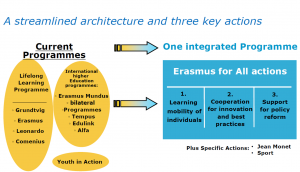

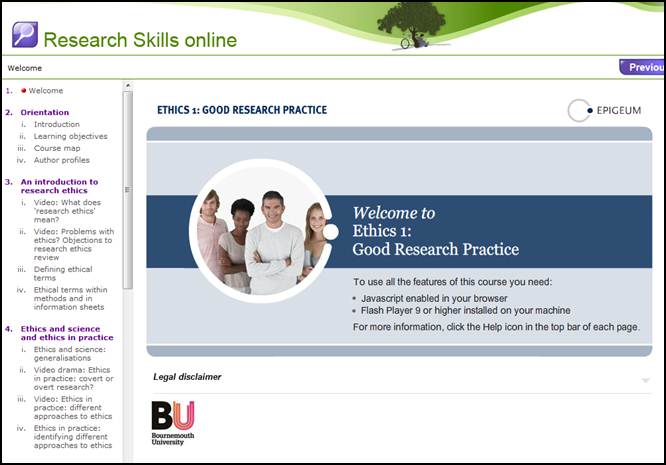 The University Research & Knowledge Exchange Committee (URKEC) recently approved the implementation plan of a mandatory research ethics e-module training course. The research ethics e-module is vital to ensure all academic staff and PGRs at BU are provided with training in research ethics. This will ensure all members of staff who conduct their own research and supervise students are proficient in basic research ethics principles.
The University Research & Knowledge Exchange Committee (URKEC) recently approved the implementation plan of a mandatory research ethics e-module training course. The research ethics e-module is vital to ensure all academic staff and PGRs at BU are provided with training in research ethics. This will ensure all members of staff who conduct their own research and supervise students are proficient in basic research ethics principles.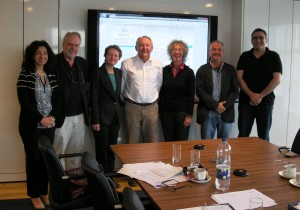





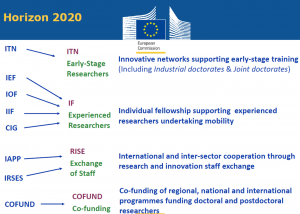





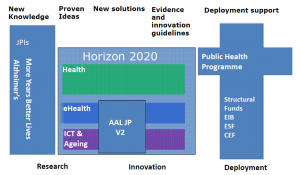














 Visiting Prof. Sujan Marahatta presenting at BU
Visiting Prof. Sujan Marahatta presenting at BU 3C Event: Research Culture, Community & Can you Guess Who? Friday 20 March 1-2pm
3C Event: Research Culture, Community & Can you Guess Who? Friday 20 March 1-2pm Beyond Academia: Exploring Career Options for Early Career Researchers – Online Workshop
Beyond Academia: Exploring Career Options for Early Career Researchers – Online Workshop UKCGE Recognised Research Supervision Programme: Deadline Approaching
UKCGE Recognised Research Supervision Programme: Deadline Approaching SPROUT: From Sustainable Research to Sustainable Research Lives
SPROUT: From Sustainable Research to Sustainable Research Lives ECR Funding Open Call: Research Culture & Community Grant – Apply now
ECR Funding Open Call: Research Culture & Community Grant – Apply now ECR Funding Open Call: Research Culture & Community Grant – Application Deadline Friday 12 December
ECR Funding Open Call: Research Culture & Community Grant – Application Deadline Friday 12 December MSCA Postdoctoral Fellowships 2025 Call
MSCA Postdoctoral Fellowships 2025 Call ERC Advanced Grant 2025 Webinar
ERC Advanced Grant 2025 Webinar Update on UKRO services
Update on UKRO services European research project exploring use of ‘virtual twins’ to better manage metabolic associated fatty liver disease
European research project exploring use of ‘virtual twins’ to better manage metabolic associated fatty liver disease